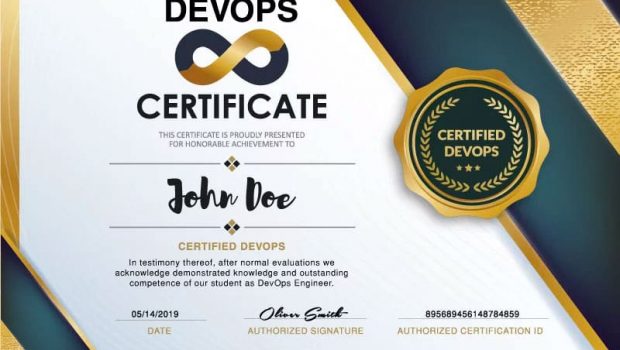DevOps Certification Course Explained – Why Might You Need It
Let’s talk about DevOps training which helps an individual to become an expert in the principles of continuous development and deployment. DevOps has changed the way I work both as a software developer and systems professional DevOps allows me to combine the best practices of both worlds development and operation into a unified disciplined that allows me to work anywhere in the inter price. DevOps is a transformational approach to IT there’s a lot to know and simply learn and understand this we have created the course that not only professionally relevant to the practice of DevOps but fun too. By the end of this course, you’ll be able to describe everything related to the DevOps course and you’ll able to explain different types of working control systems continuous integration tools continuous monitoring tools and cloud models. You’ll how to configure private instances of Jenkins and TeamCity also you’ll able to work Jenkins using java, git, maven you’ll able to set up a test-driven development framework with Junit 5 and a behavior-driven development framework with cucumber.
Why is certification Important?
So there are a lot of reason of you should seek out certification in a number of IT-related programs software or skills but three reasons are very important, First is credibility then marketability personal development so when I talk about credibility what I mean by that is IT certification is testament to your skills and preference in certain area let me give you an example becoming a VP ware certificated professional tells hiring managers companies and clients that you have the experiences and skills needed to affectly create design manage and maintain a cloud environment this the biggest reason why IT professionals pursue IT Certificate helps validate your skills in your current job the second point is marketability no matter where you are in your IT career certifications will always give you an edge over non-certificate IT professionals certification does more than just validate your skills and experiences it also shows potential employers that your committed to your IT field by spending the money and time to opted your certification. IT certification also makes career advancement more likely the plain truth is that general IT certification can help you get a pay rise promotion.
DevOps Certification
Let see what are DevOps certification available in the market so there is no authentic one DevOps certification so I get this question a lot and there is a lot of buzzes around to answer this question for me simply there is authentic one certification. DevOps is not about one single tool it is not owned by one single organization since it’s a practice and involves multiple tools there are certifications or different tools that are in use, for DevOps, there is no authentic certification available in the market. So the course that is designed by eureka gives you in-depth knowledge of various DevOps tools, to be honest, the most widely accepted tools in the market so, we have git, docker, puppet, Kubernetes, Jenkins, Nagios all of these tools are pretty trending and they have a huge market range in the market and all of them are better than their competitors.
The workflow of DevOps and DevSecOps
So lets take a look at develops like this a developer writes a code for a features within the version control management system the required changes are committed to the version control management system and another developer retrieves the code from the version control management system and performs analysis of the code to identify security threats and sometimes that developer might do it with security professional and another time security analysis after the developer retrieves the code or its rendering. An environment is created using management tools such as puppet or chef the application is deployed and security configurations are applied to the system so after the code is applied so the next step is a test automation suite is executed against the deployed application on factors like UI, integration, security tests, and APIs. If the application passes the test, it is deployed to the production environment. Many times it depends on an activity the artifact being deploy the companies would require you have to approve it.
Types of control systems and their supporting tools
The types of source control systems there are 3 types of source control systems there’s a file system based source control system and it uses a single repository for each directory. It is often a symbolic link to a shared directory or network drive in the inner price and some source control system is client-server its acts as a central repository that can be used by all. It supports lock-modify-unlock and copy-modify-merge and then there’s a distributed source control system and they create replicas of the repository on each computer. It is fast and is based on immutable snapshots of its state. This means the changes in the local repository will not affect the service side repository. File-based source control system early source control systems worked at the level of the local file system it required a subdirectory called SCCS or RCS containing the changes. For an example of file-based source control systems: SCCS and RCS this subdirectory contains changes in SCCS: it is a version control system built to scrutinize changes in the files during the development it takes up a large amount of space and makes it difficult to retrieve information. RCS: it is an early version control system with a set of Unix commands where multiple developers can develop and maintain documents. Only one user can work at a time.
In Conclusion
DevOps training course helps you to become expert and professional in the principle and many people think that its hard to but it’s not that hard it all depends on individuals training and DevOps has a lot of tools and types of control systems but an individual needs to know how to use these tools and systems in order to be expert at it and it includes many tools like git, docker, Jenkins, cucumber, ansible, TeamCity, and Nagios.
















